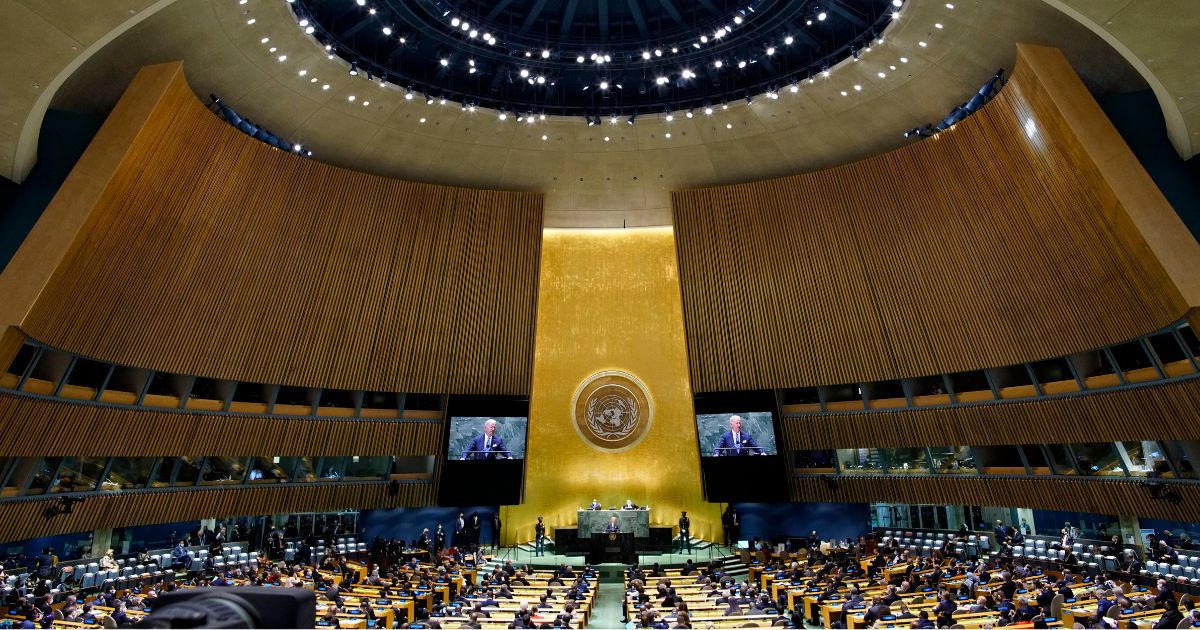While thousands of irrelevant politicians, industrialists and hangers-on met in Davos, Switzerland, striving for a modicum of positive reinforcement that their annual soiree actually stood for some awe-inspiring principle, the U.S. House of Representatives exhibited the early glimmers of cognizance as the stage was set for a cantankerous debate on the exorbitant spending habits that have driven the country into a fiscal ditch.
Rather than enable that cheerless band of presumptuous elites who demand absolute power, offering nothing worthwhile to share with humanity, the House should reassert its power and significance in an illustration of how a constitutional republic should function.
After decades of billion-dollar expenditures on multiple needless wars, public surveillance tools and inconsequential irrelevancies that have drained precious resources from improving the daily lives of Americans, the elected class reached the striking realization that a statutory debt of $33 trillion (with 5 percent interest due annually) is unsustainable.
Despite Democratic hair-on-fire accusations, that figure does not include entitlement programs like Social Security and Medicare, which would add another $30 trillion to the federal debt. Both are off the table as potential sources of revenue, as both provide necessary support for millions of Americans.
The federal government’s administrative state and its acquiescent Congress have rarely exercised the necessary discretion to forego in the name of austerity such ludicrous line items as the thousands of earmarks and “woke” trinkets hidden within the recent $1.8 trillion omnibus bill.
Like a first-time credit card recipient who loses track of financial sanity, they go nuts until that credit limit is reached and all spending screeches to a halt; that is Shopaholic 101.
Like any drug habit, a spending obsession demands an immediate fix that can only be satisfied by exceeding the credit limit — except when the offending druggie is the federal government, which has never, ever had to confront its compulsive need to spend other people’s money since the invention of the federal income tax and the Federal Reserve, both in 1913.
When the House gets down to seeking budgetary relief, there needs to be recognition that the U.S. should not continue to fund every international organization taking advantage of U.S. largesse as the sugar daddy of the world with unlimited financial resources.
Since the late 1940s, when the United Nations and the World Health Organization were created, both have grown into bloated bureaucracies that have deviated from their original humanitarian goals.
Neither has proven to be open to oversight or fiscally responsible, depending on a guarantee of unwavering financial support from the U.S. Most importantly, each has adopted new contrarian roles that threaten U.S. sovereignty and no longer reflect American beliefs or deserve American dollars.
Democrats need to resign themselves to the fact that their tantrums and snit fits on the House floor will not assuage the problem that they themselves have been instrumental in creating.
Defund the United Nations
As the UN’s largest donor, the U.S. provides $11 billion annually, which is one-fifth of the UN’s annual budget.
Founded immediately after World War II on the principle of maintaining global peace and security, the UN has broadened its focus to assume a one-world mission.
The UN and the World Economic Forum signed a “strategic partnership agreement” in 2019. That agreement, which was never approved by the General Assembly, represents an unprecedented and dangerous move toward “privatized and undemocratic global governance.”
In addition, UN representatives have been identified along the U.S.-Mexico border working to facilitate the passage of illegal migrants into the U.S. — no way to repay a country with a history as its largest and most consistent contributor.
Defund the World Health Organization
The U.S. has been one of the WHO’s largest donors over the years, donating $700 million in 2020-21. The U.S. contributed another $280 million to the WHO’s COVID-19 pandemic response. In addition, President Joe Biden repaid $200 million “owed” to the WHO after Donald Trump’s withdrawal.
Immediate withdrawal from the WHO would release the U.S. from the requirement to accept amendments to the WHO’s International Health Regulations, which, if adopted, would be legally binding under international law. The amendments would restructure WHO from an advisory organization that makes recommendations into an authoritarian governing body.
Needless to say, the U.S. open-door policy of haphazard fiscal commitments to every institution that comes knocking on the door — to the detriment of its own citizens — has forced the introduction of a new, previously foreign habit: setting priorities.
While defunding UN and/or the WHO would be a drop in the debt bucket, the very act of debating what was once considered untouchable would establish a new reality that the U.S. checkbook is no longer available. It will be up to the House and its speaker to be the bearers of good news to the American public that the federal government’s door is closed.
This article appeared originally on The Western Journal.

























 Continue with Google
Continue with Google